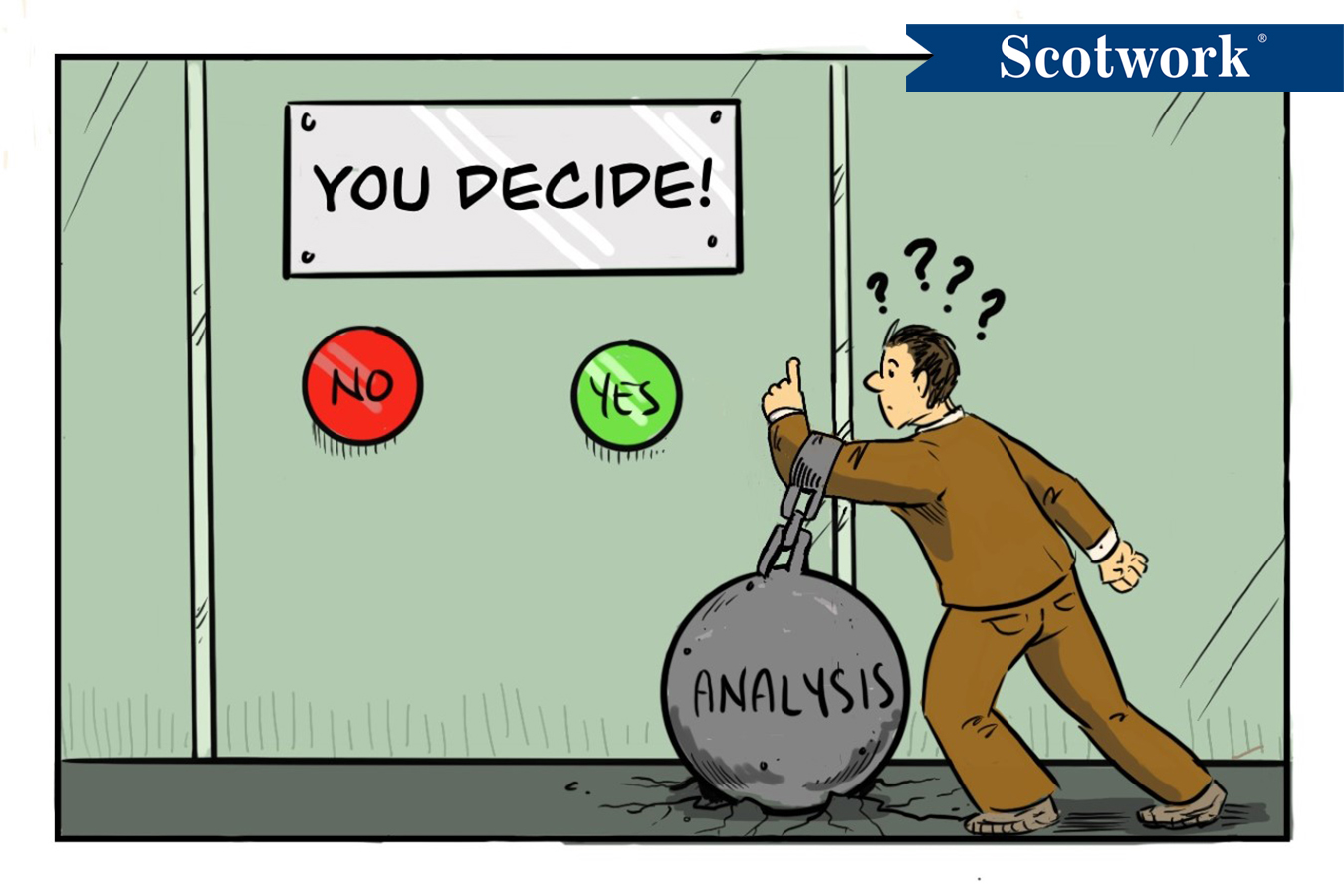During the last week of July, we saw an overwhelming confluence of economic data, earnings reports, Federal Reserve announcements, and spending deals move through Congress. It was dizzying — in particular, for those attempting to figure out where the economy is headed and what to do about it. Whether you’re trying to make decisions for your company or your family, all of that data could grind your decision-making to a halt. Worse yet, if you’re in the middle of a negotiation, it could stall talks to the point of deadlock.
At the negotiating table, there’s a persistent misunderstanding that one big decision or proposal leads to a deal. In reality, most closed deals are the result of a series of decisions and proposals that the negotiators built upon to arrive at sign-off. For any negotiator, the trick to creating valuable deals is to make good decisions along the way. That’s not as easy as it sounds, particularly if you suffer from analysis paralysis.
If you find yourself suffering from analysis paralysis (AP), here are some things you can do to keep your negotiation on track.
Learn to recognize it
As clichéd as it sounds, the first step to ensuring that AP doesn’t impact your negotiation is to recognize it. It might be that you have increased anxiety or feel overwhelmed. Those are usually byproducts of AP, whose early signs can include feeling like there are endless possibilities contained within the decision before you. In other words, all options are viable and it’s difficult to narrow them down. Or it’s taking you a lot longer to narrow your options than it did to come up with them. In these instances, recognize that you may be headed toward AP.
Step away
Taking a break and stepping back can help you to gain perspective. It’s a good time to explore why you feel this way. Is it due to previous experiences, or is it because of the magnitude of the decision? Examining the reason can help you move forward. In addition, you may want to consider the weight you’re giving the decision. Is it as big of a deal as it seems? You may want to ask for help from a friend or colleague who can bring an outsider’s perspective to the table.
Don’t let perfection be the enemy of good
In pursuit of perfection, we tend to overanalyze. Remember, nothing is perfect. However, we can get caught up in the idea that we could make something perfect — that we could make the perfect decision or choose the perfect strategy. At best, we can make good to great decisions, but rarely, if ever, do we make perfect decisions. Instead of seeking perfection, trust your instincts and make the call. Don’t be surprised when you’re right more often than not.
Practice making (smaller) decisions faster
If you’re struggling with making big decisions, try making smaller decisions without giving yourself too much time to think about them. That might seem terrifying at first, but with practice, they’ll get easier. As you grow more comfortable with the smaller decisions, the bigger ones become less daunting.
Find comfort in uncertainty
In every negotiation, there are going to be levels of uncertainty. It’s not possible to plan for every possible outcome, and no amount of research can give you a complete picture. This means there are certain unknowns that we have to be comfortable with in order to move forward. As with making decisions, start small and build. It’ll get better as you grow more comfortable.
The world isn’t getting simpler. Data abounds on just about everything. The better you process that information, the faster you can make good decisions. The better you are at making good decisions, the better your deals will be. Get hold of your paralysis and enjoy more valuable deals.
We Can Help Your Team Beat Analysis Paralysis
Is your team’s analysis paralysis derailing their deals? We can help! Drawing on nearly 50 years of real-world negotiating experience, we’ll assist you with getting better deals, saving time, and creating value for all involved — not to mention preserving and even strengthening relationships. Let us partner you with one of our advisers, ensuring that you’ve got the broadest view of your deal.

